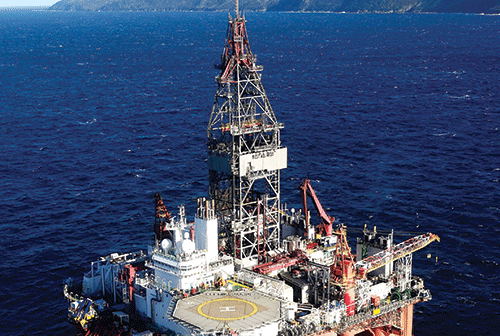Namibia is facing severe challenges in its foreign direct investment (FDI) landscape,
as recent reports indicate a notable decline in net FDI inflows during the second quarter of 2024.
This downturn, amounting to a decrease of N$7.2 billion year-on-year and N$3.9 billion quarter-on-quarter, has brought net inflows down to N$8.5 billion.
FDI refers to an ownership stake in a foreign company or project made by an investor, company or government of another country.
FDI is a key element in international economic integration, as it creates stable and long-lasting links between economies.
Bank of Namibia’s (BoN) recently released quarterly report states that the FDI decline is primarily due to high base effects from the previous year’s substantial sale of foreign assets in the manufacturing sector, which skewed comparisons for this year.
The impact of this decline is multifaceted. A significant factor contributing to the reduced inflows is the slowdown in oil exploration and appraisal drilling campaigns by major operators in the region. As these companies scaled back their activities, the associated expenditure on appraisal drilling also diminished, leading to a contraction in investment.
“On a quarterly basis, the fall in net FDI inflows was attributed to the decline in oil exploration and appraisal expenditure, reflecting the slowdown in the appraisal drilling campaigns by some of the major operators.
Furthermore, the repayment of intercompany loans by FDI enterprises in the mining sector also contributed to the decrease in net FDI inflows during the second quarter of 2024,” reads the report. Namibia has attracted global attention due to the quantity and quality of its recent oil discoveries in the Orange Basin. These hydrocarbon discoveries have been a major factor for record FDI made via equity injections for exploration activities as well as the uptake of intercompany loans.
In parallel, Namibia’s services account has recorded a higher net outflow of N$3.9 billion for the current quarter, compared to N$2.5 billion a year ago. This increase is largely due to rising payments for maintenance and repair services sourced from abroad, particularly for vessels used in the mining industry.
The surge in outflows reflects an increased demand for technical and trade-related services linked to oil and gas exploration activities in the Orange Basin.
Despite these challenges, there is a silver lining, as on a quarterly basis, total services outflows decreased significantly from N$7 billion in the preceding quarter.
This reduction can be attributed to lower payments in other private services, as oil and gas exploration companies curtailed their drilling campaigns as mentioned before.
Furthermore, an uptick in travel service receipts, driven by an increase in airport passenger arrivals, has contributed positively to the overall balance.
Meanwhile, the Namibia Investment Promotion and Development Board (NIPDB) CEO Nangula Uaandja said Namibia attracted N$73 billion in FDI inflows between 2021 and 2023, of which about 45% or some N$33 billion is attributable to the oil and gas sector.



